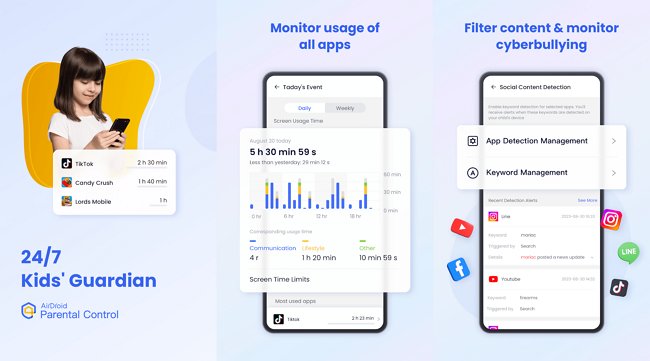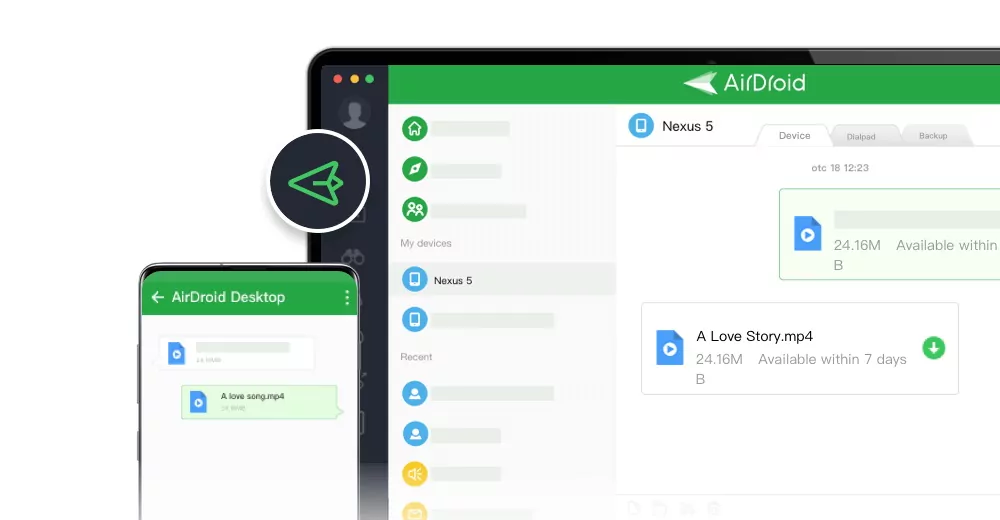A Parent's Guide to Help Your Child Beat Fortnite Addiction
Parents are worried that their kids might get addicted to Fortnite because it's tough for them to stop playing once they start. It combines parts of world-building and competition, keeping players interested for short, exciting periods, leaving them wanting more.

To assist your youngster in overcoming their Fortnite addiction, set specific playing time limitations. Furthermore, kids should be urged to spend time with friends in person, prioritize homework, and participate in offline activities. Let's explore this game more and how you can help your kids overcome it!
What Is Fortnite?
Fortnite is a popular online video game where players team up to survive in a big virtual world. They fight against other characters whom the game or other players can control. It's all about working together, battling enemies, and staying alive in an exciting, open-world adventure.
Why Is Fortnite So Addictive?
Fortnite's addiction has captured the interest of youngsters across the world. So, let's discover a few reasons why kids may become addicted to Fortnite:
Incentive System: Winning matches or completing tasks gives players a feeling of success and fulfillment.
Competing Nature: The desire to grow and compete against others motivates players to continue playing and achieving success.
Captivating Visuals: Bright colors, engaging animations, and unique characters attract a wide range of gamers, particularly younger ones.
In-Game Events: Limited-time events with special incentives create a sense of urgency and excitement among participants. Acquiring fresh looks, emotes, and equipment encourages gamers to continue playing and improving.
Adrenaline Rush: Intense combat, fast-paced action, and unexpected events provide fascinating experiences that keep gamers returning.
Interpersonal Connection: Fortnite promotes community by encouraging people to communicate and play with their friends.
Fortnite Addiction Symptoms
Parents need to know the signs of Fortnite addiction to help their kids healthily play games. Some significant Fortnite addiction symptoms are:
● Ignoring Responsibilities:
Prioritizing Fortnite above academics or housework demonstrates a lack of control over gaming and requires assistance to restore balance. Children who abandon their obligations in favor of Fortnite may suffer in terms of academic achievement and everyday routines. Parents should restrict gaming time and help their children prioritize chores to balance gaming and life.
● Loss of Interest:
If Fortnite becomes the primary focus, displacing previously liked activities, this may indicate addiction and necessitate parental action. Children who lose interest in hobbies, sports, or social connections due to Fortnite addiction should be encouraged to pursue other interests and participate in offline activities.
● Physical Health Issues:
Headaches, tiredness, or strained eyes from prolonged screen time indicate a possible addiction and require moderation and breaks. Playing games for a long time can lead to physical discomfort and health problems.
How to Help Your Kids Overcome Fortnite Addiction?
Finding ways to help your child play less and be healthier is essential. This can improve their well-being and how they use technology. Let's look at a few crucial methods for overcoming Fortnite addiction:
1. Set Clear Boundaries and Consistency
Discuss the Fortnite game regulations, including specified playtime and duration limitations. Ensure that these limits are routinely maintained to develop regularity and discipline. Convey these regulations' reasons, emphasizing the need to balance gaming with other obligations or activities. Consistent reinforcement promotes self-discipline and teaches your kid the importance of good time management.
2. Encourage Diversification of Activities
Help your child discover new interests beyond gaming. Try different hobbies like sports, art, reading, and outdoor fun. Furthermore, let them choose what they like best. Encouraging the discovery of other hobbies promotes creativity, social skills, and personal growth, giving meaningful experiences outside Fortnite's virtual world.
3. Lead by Example and Moderation
When you use screens, show your child how to do it responsibly. Make sure to spend time away from screens and with people face-to-face. This helps your child learn how to balance using technology with other activities. They'll see that having a healthy mix of screen time and real-life interactions is essential.
4. Promote Open Communication and Understanding
Establish an inviting setting where your child feels comfortable addressing gaming habits without fear of being judged. Start open talks about their Fortnite experiences, attentively listening to their opinions and concerns. Encourage a collaborative approach to problem resolution, in which you and your kid work together to overcome gaming-related obstacles or issues.
5. Show Positive Reinforcement
Recognize and reward your child's efforts to limit Fortnite gaming and participate in other activities. Provide particular appreciation for their successes, emphasizing their dedication and perseverance in effecting good change. Celebrate accomplishments as a family, such as finishing a week with less screen time or discovering a new activity. You boost their confidence and drive to maintain better behaviors by encouraging and reinforcing them.
6. Create a Tech-Free Zone
Making a place in your house without gadgets can benefit your family. Certain spots, like the dinner table or bedrooms, are off-limits for gadgets. It helps everyone spend real time together and talk to each other. These places become spots where families can take a break from screens and have good talks face-to-face. Putting away gadgets during meals lets everyone enjoy being together and makes the family closer. Similarly, having a no-screen policy in bedrooms encourages better sleep hygiene and relaxation, which benefits general health.
How Does Fortnite Affect Children?
Fortnite can impact kids positively and negatively. On the bright side, it fosters teamwork, strategic thinking, and social connections, helping them develop valuable skills and friendships. Contrarily, if they play too much, it can be harmful. Excessive Fortnite play can disrupt kids' sleep, reduce physical activity, and hinder academic performance.
Should I Stop My Child Playing Fortnite?
Absolutely! You can use AirDroid Parental Control to stop your child from playing Fortnite. It ensures safe internet exploration and gaming for kids under parental supervision. This specialized tool demonstrates a commitment to providing a safer online environment where children may develop without exposure to dangerous games. You can easily monitor your kid's gaming habits using this tool. It's a simple, effective, and vital option for responsible digital parenting.












Leave a Reply.